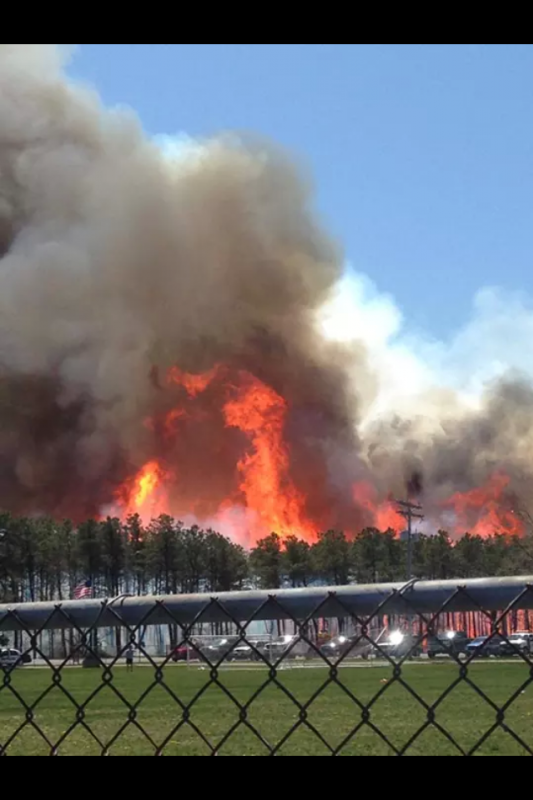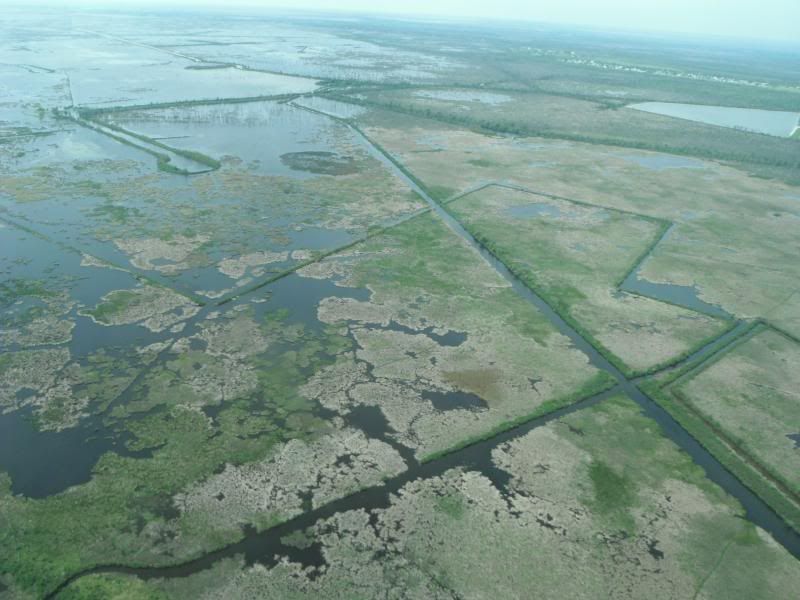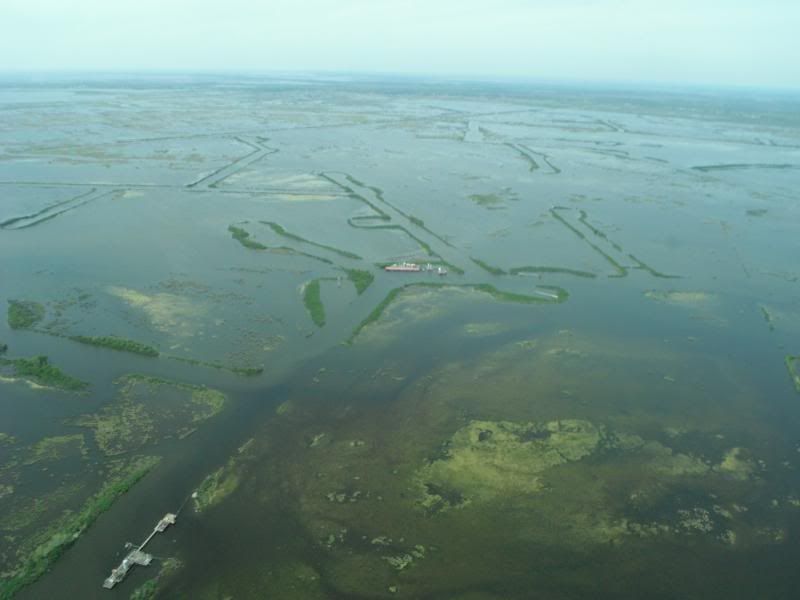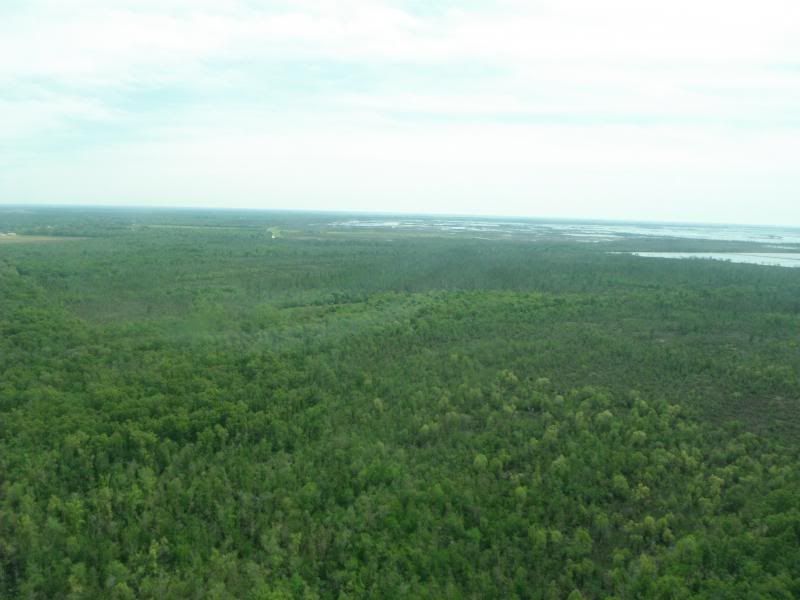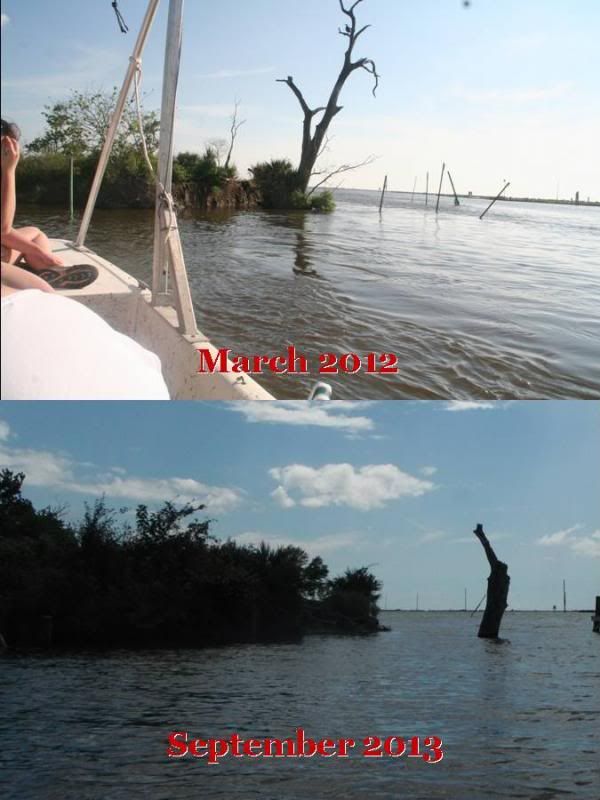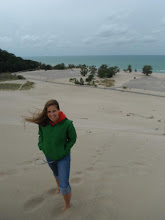I just got back from my first overnight canoe trip since 2007. OH MAN IT WAS AWESOME. My friend Lindsey joined me for a really great long weekend on the bayou. We paddled 52 miles over 4 days through people's back yards, enjoying local food, conversation, flora, fauna, and music.
Paddle Bayou Lafourche is an annual event put on by the
Barataria-Terrebonne National Estuary Program, a great organization that I have enjoyed many good resources from this year as I learn and teach about wetlands issues in the region. National Estuary Programs came out of the EPA's Clean Water Act in the late 80s. At home in New Jersey is another one--
Barnegat Bay Partnership.
Thursday, from Donaldsonville to Napoleonville: It was a tough first day. Paddling down the bayou on a windy day is much like paddling in a wind tunnel... in the wrong direction. We faced gusts up to 20mph. I hadn't been in a canoe in almost seven years, so my arms were a bit out of practice to begin with, but this was rough for everyone. We paddled almost 18 miles, about 11.5 of which were before lunch. We felt a little hopeless, but we did it, and enjoyed a good dinner and glorious night of camping at Madewood Plantation.
Friday, Napoleonville to Thibodaux: The wind died down, but the forecast remained questionable. We lucked out with only a little bit of rain on and off as we continued to explore the bayou. We landed at the Jean Lafitte museum in town, having done just shy of 16 miles.
Saturday, Thibodaux to Raceland: We launched from Nicholls State University, just below Jean Lafitte, because there's a weir in the bayou between the two and the BTNEP staff probably didn't want to deal with all of the idiots who would have tried to paddle down it. Lindsey and I finally got into a rhythm, finishing ahead of a lot of people who doubted we would survive the first day. We also finished just a few minutes ahead of torrential downpour and hail. Right before we landed after about 15.5 miles, Lindsey decided to follow through with a wild idea she came up with early in the day-- yoga on the bayou, or "bayoga" as we came to call it. She decided to do a headstand while I balanced the canoe:
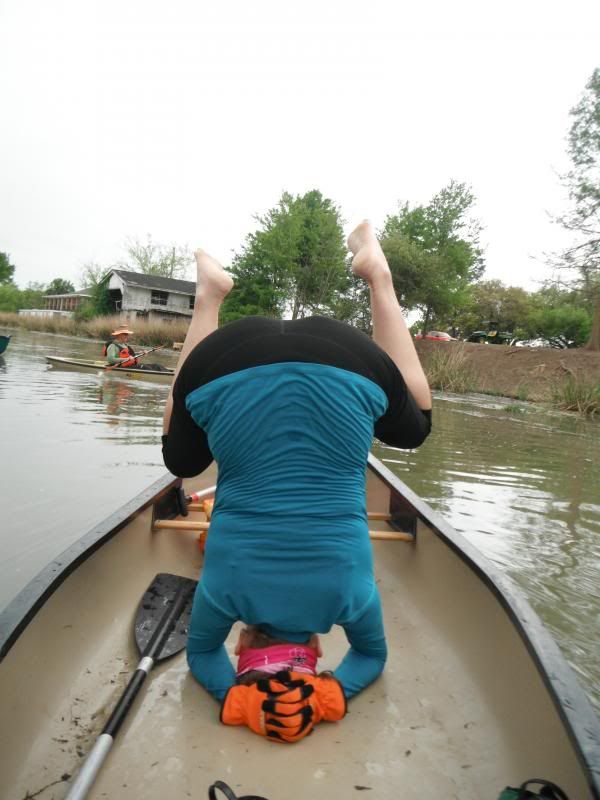
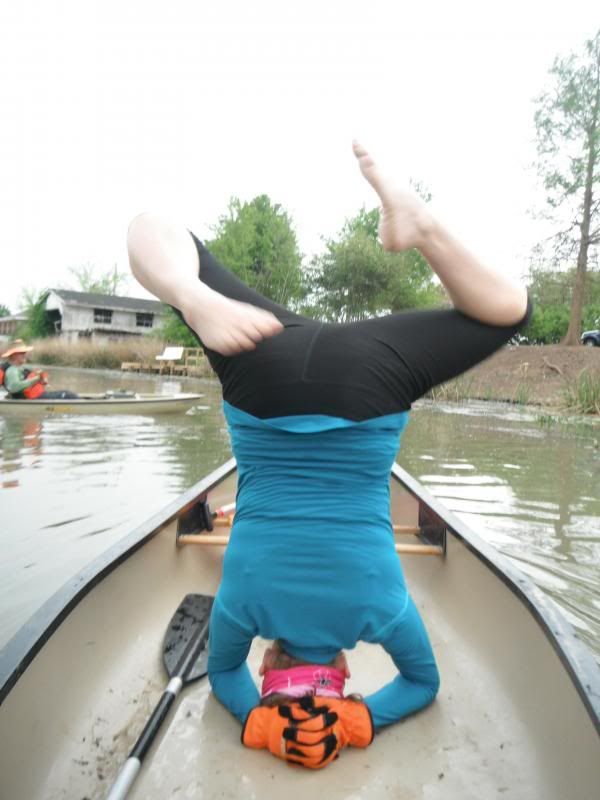 Sunday, Raceland to Lockport
Sunday, Raceland to Lockport: Just a short 5.5 miles to finish up. BTNEP's Water Quality Coordinator, Andrew, was without a paddling partner for the last day and asked to join us. Lindsey enjoyed sitting in a chair in the middle of the canoe asking lots of questions about the bayou. We had paddled beside him and his canoe partner Michael, BTNEP's Invasive Species Coordinator, the three days before, peppering them with questions about soil science and ecology, so it was cool to have him on board answering our environmental questions the entire time without worrying about keeping up with him.
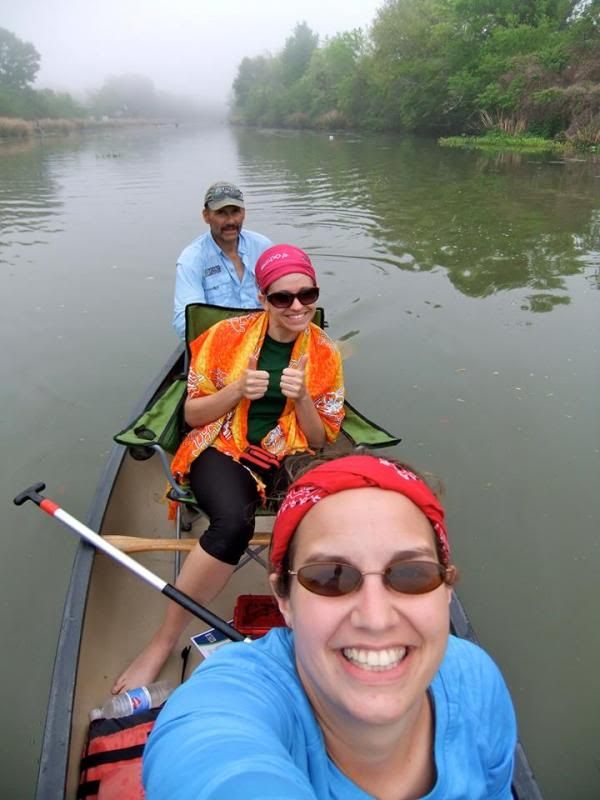
The day started off very foggy, but we once again beat the rain after a late decision to follow through with the final stretch at all. The trip ends in Lockport, because any further south and we'd start running into enormous ships. Just before we landed, I had Andrew balance the canoe while Lindsey took a picture of my bayoga efforts (obviously going for a tree):
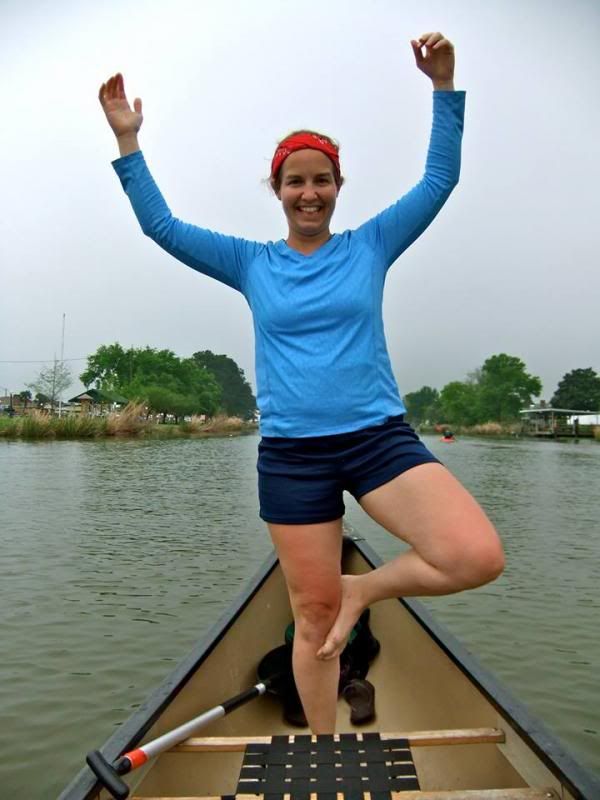
It was so nice to go out on an adventure for a few days. This was technically work-related for me, so I did spend some time contemplating Bayou Lafourche, which is the main source of drinking water for the region--
- A few weeks ago, BTNEP hosted a massive bayou cleanup, which usually involves hundreds of volunteers along 106 miles of Bayou Lafourche (we only paddled 52 miles). They pick up thousands of pieces of garbage ranging from cigarette butts (please please please stop throwing cigarette butts out the windows) to plastic bottles (please please please recycle those and/or stop drinking bottled water when it's totally unnecessary) to tires, toilets, and couches. Full frightening details from last year here. I will say it again: this is the main source of drinking water for the region, for tens of thousands of people.
- The first day, as we paddled straight into 20mph gusts, it was all too clear a picture of how easily salt water flows back up the bayous in nothing more than a stiff wind. When the wind wasn't blowing, the water was completely slack. No current. Tough to paddle, but also tough for it to remain fresh, flowing off the Mississippi at Donaldsonville.
- As we paddled under local bridges, cars drove over our heads. Some of the bridges were grates. As I felt the rainwater drip off one onto my legs and head, I shuddered at the thought of leaky cars just letting fluids straight into... the drinking water supply.
- We wound past countless signs warning of gas and oil pipeline crossings. Again... slow leaks into the drinking water, distinctly possible.
Plus, let's consider the greater watershed with the help of the Department of the Interior's
Streamer Tool. Here's the portion of Bayou Lafourche that we paddled:
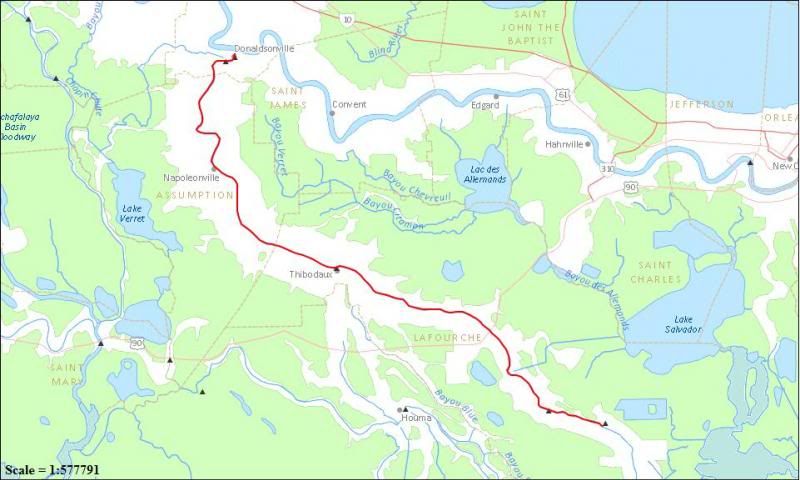
And here is the watershed of the Mississippi River, down to Bayou Lafourche:
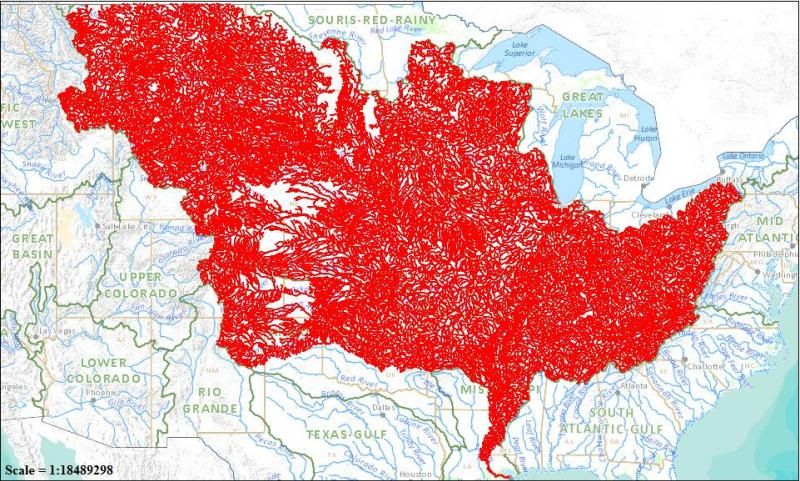
That's 31 states, plus two Canadian provinces, full of agricultural runoff, fluids from leaky beat up cars, cigarette butts from careless people, and other awful things.
I would really encourage you to think about your relationship with your home watershed, whatever it may be. Water is so precious.
I did not spend the entire trip having nightmares, but the whole awareness angle that BTNEP is playing by hosting this event on this particular bayou definitely worked. The vast majority of it was relaxing and wonderful. There were at least six different kinds of bread pudding served over the course of the trip. There was a man sitting on his fishing dock playing his accordion for the paddlers. There was bayoga and shenanigans with Lindsey and other people around us. There were blooming black locust trees, and swaying cutgrass, ducks and geese and swallows and red winged blackbirds, and lots of people waving hello and speaking French and smiling and many, many other beautiful things.

